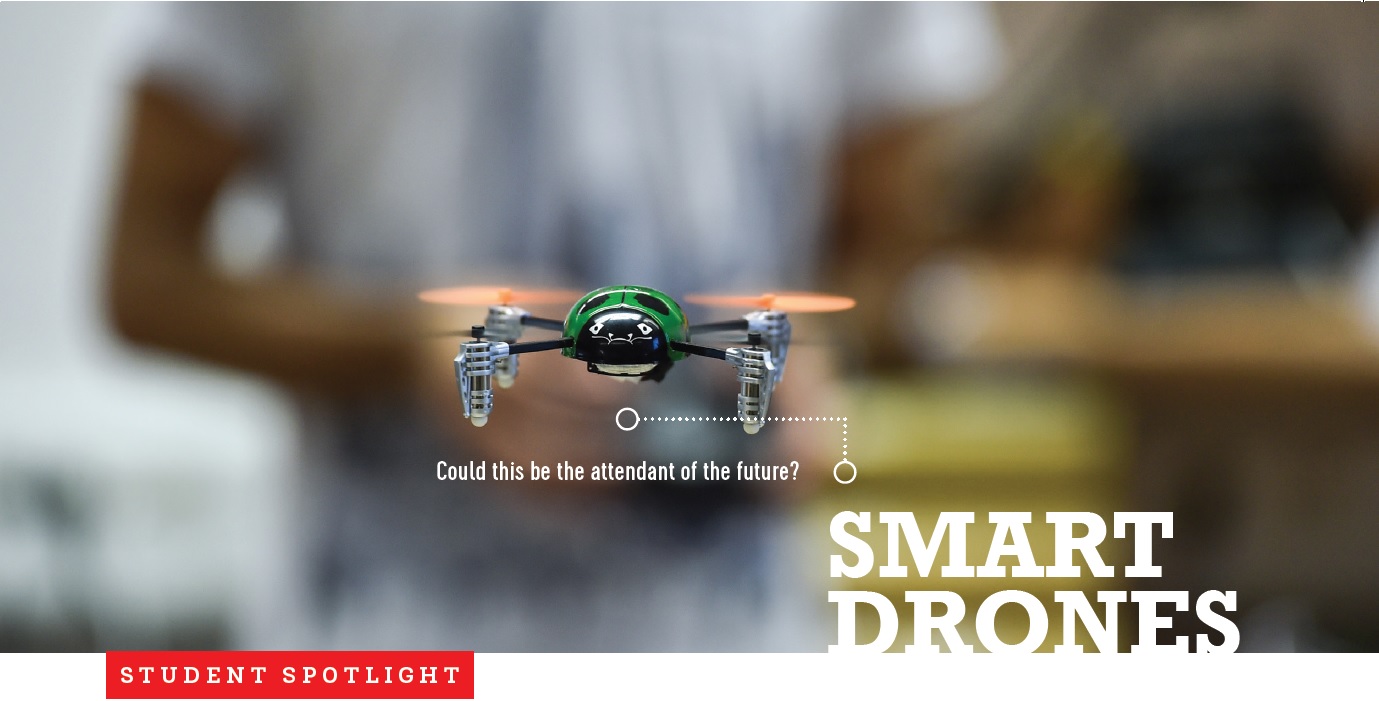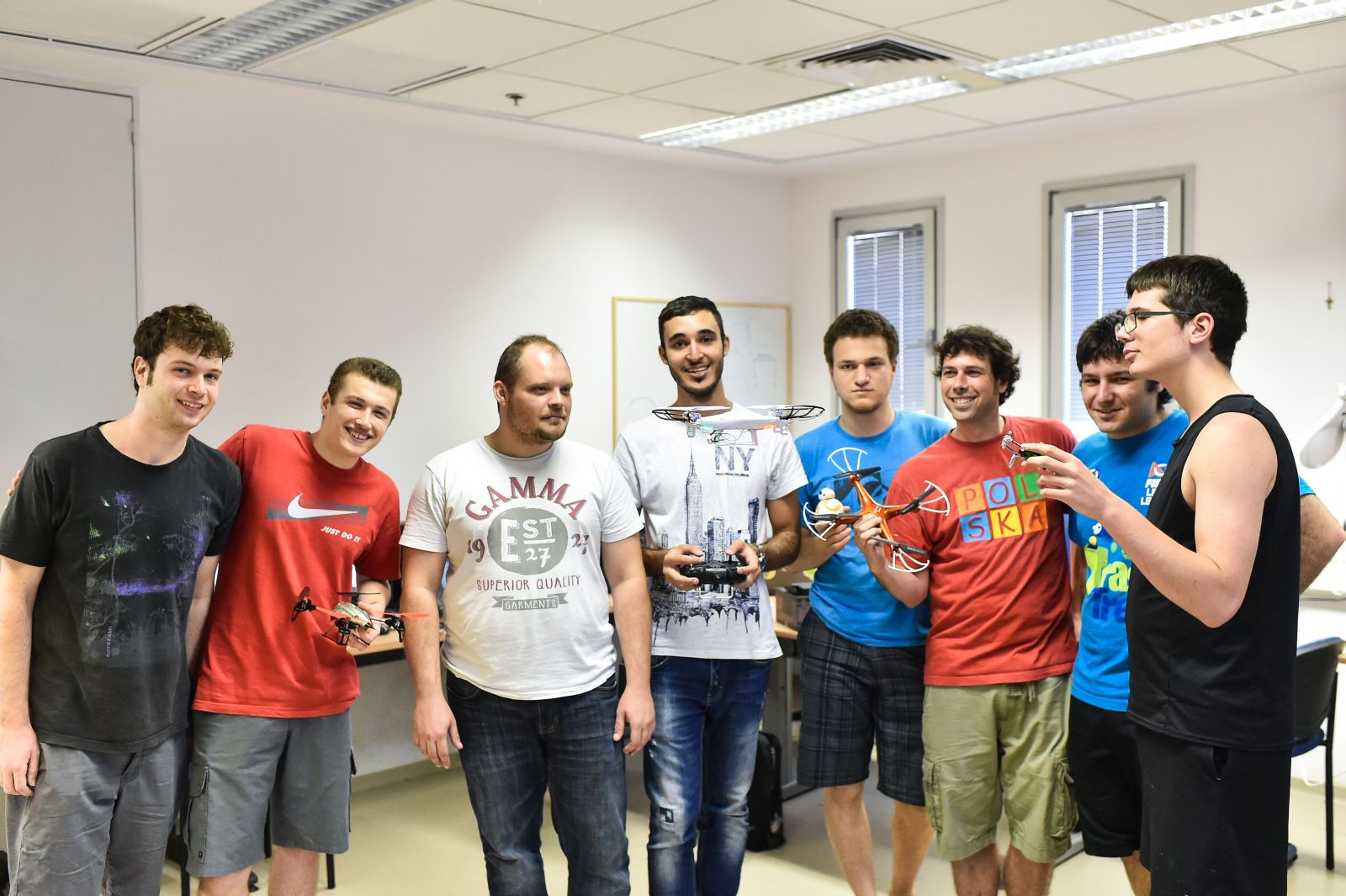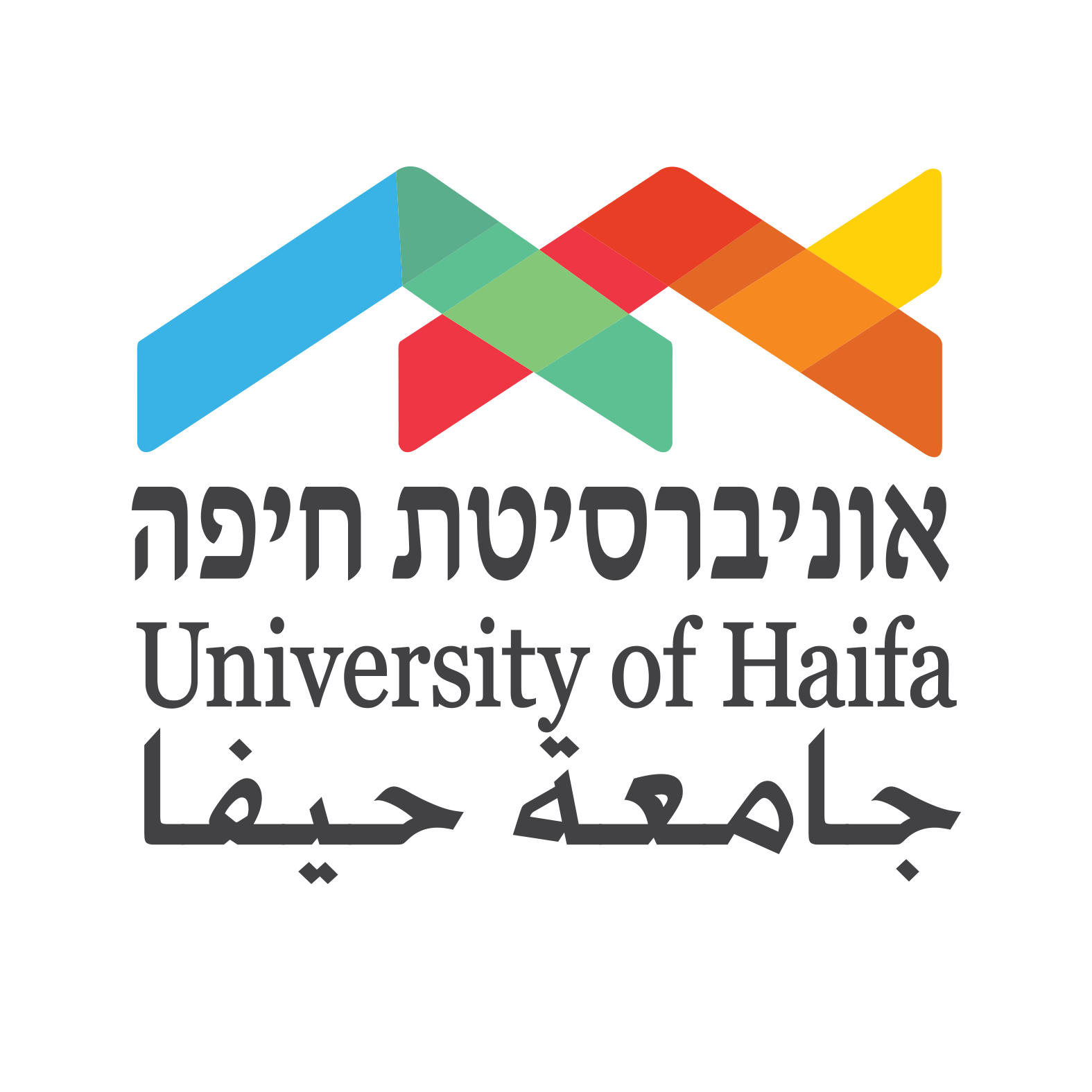
Imagine having a small flying robot assigned to help you navigate through complex grounds and large buildings such as airports, shopping malls, hospitals and even university campuses – in such a world you’ll never get lost again.
At the Robotics and Big Data (RBD) Laboratory, a team of Computer Science students are developing inexpensive real-time tracking systems that will turn ordinary toy drones into autonomous drones, capable of navigating through complex grounds and buildings. Soliman Nasser (PhD student) and his lab partner Ibrahim Jubran (MSc student) are developing state-of-the-art algorithms based on coresets that will be able to track and localize flying robots. With the help of research assistant George Kesaev and BSc student Michael Volgin, the team succeeded in creating a low-cost tracking system to ultimately replace commercial systems that are up to a hundred times more expensive.
The main challenge is stabilizing the drones using large amounts of data collected from cheap sensors such as 3D cameras, electroencephalography (EEGs) and inertial-measurement unit (IMUs). This is achieved by calibrating the movement of the drone to a carefully chosen set of points or markers (such as visual features or even stars in the sky) collected by sensors within a virtual world. Defining the automatic selection of these ‘smart’ set points is a key challenge. Once this application runs smoothly it can be adapted to indoor or
outdoor environments. The team is also working on the development of a low-cost docking surface for the drone to be able to recharge easily and swiftly, as its flight time is considerably short at 7-8 minutes.
ABOUT THE TEAM

Soliman and Ibrahim are both graduates of the prestigious Etgar Program, which selects outstanding high-school students to complete an undergraduate degree in computer science at the University of Haifa in tandem with their school studies. Last November they won first place
in the HACKaDRONE college student competition sponsored by the Moona Technology and Space Center in the Western Galilee for their ‘parking drone’ – an autonomous quadcopter capable of finding a parking space best suited to the driver in terms of distance and other pre-defined preferences via image processing algorithms.
Michael and George are both new immigrants. Michael arrived to Israel from Russia when he was 18 years old. After completing his army service, he began his BSc degree in Computer Science at the University of Haifa. Along the way he overcame various financial challenges which did not deter him from continuing his studies. George came to Israel on the “Na’ale” Program (Hebrew acronym for “Youth who Immigrate
Before their Parents) from the Ukraine when he was only 14 years old. After completing his army service he enrolled in the Faculty of Computer Science at the University of Haifa.
The RBD Lab also attracts international students from leading universities to conduct their research under the guidance of Dr. Feldman. One such student is a senior Tufts University undergrad named Tomer Lee Shapira who came for a two-month internship program through ‘Onward Israel’ run by the Jewish Agency. He is working on a home automation security network using simple, low-cost parts that will enable a ‘twist the lock’ shut of the front door through a cell phone.

